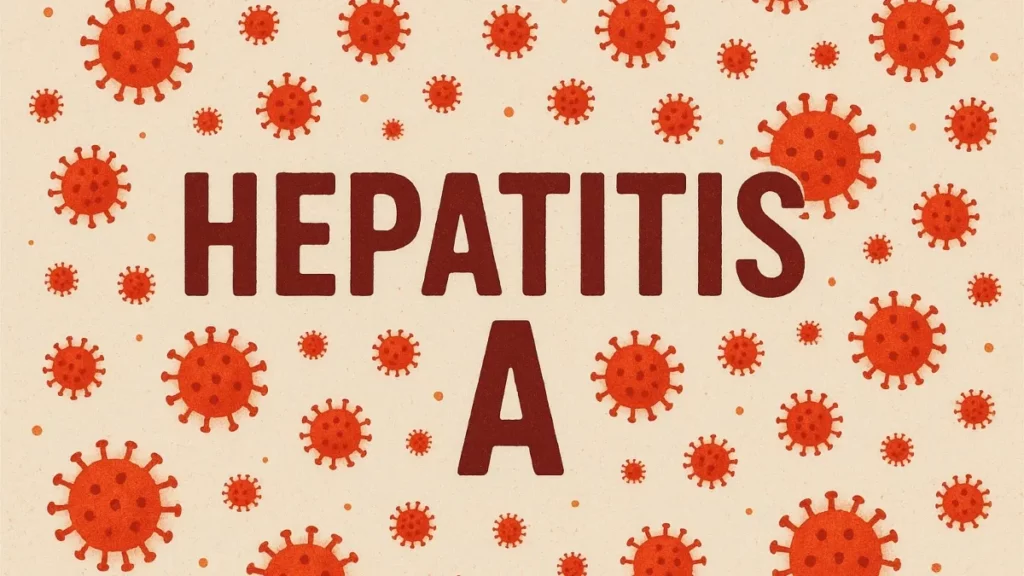
This monsoon, let’s stay one step ahead. Because all it takes is one sip of contaminated water, and no parent wants to look back and say, “I wish I had done more.”
No parent wants to see their child fall ill. They go above and beyond to ensure their child stays safe and healthy. During the monsoons, every parent takes all necessary precautions, such as providing filtered water and home-cooked food to children, to keep infections at bay. Yet, despite these efforts, illnesses such as Hepatitis A can still make their way in.
According to Dr Praveen Gokhale, Paediatrician, MBBS, DCH, MD, Director – Critical Care, hepatitis A is a viral infection that affects the liver. Many recover with only mild symptoms, but the infection can still spread to others in the home or school. Most children recover fully with adequate rest, nutrition and hydration, but in some cases, the symptoms can keep on relapsing for up to 6 months, and severe cases may require hospitalisation. In some cases, it can cause complications such as acute liver failure.
In India, cases of hepatitis A tend to rise during the monsoon. A review of national surveillance data found that it caused over 7% of acute jaundice cases between 2011 and 2013, with seasonal peaks following periods of heavy rainfall. Studies in parts of Maharashtra have also shown a rise in paediatric cases during and after the rain, often linked to unsafe drinking water and poor sanitation.
Hepatitis A is preventable. Here are three important steps parents can take right now:
Handwashing is a simple habit that protects against much more than dirt. Children are naturally active. They play, explore and often forget to wash their hands before meals or after using the toilet. But this everyday habit is one of the most important ways to prevent the spread of hepatitis A.
The virus passes through the faecal-oral route, which means that the virus on hands or surfaces can lead to infection. Teaching children to wash their hands properly with soap and clean water can significantly lower the risk. This is especially important before eating, after using the toilet and after playing outside.
In places where soap and water are not readily available, carrying a sanitiser can help. According to the National Centre for Disease Control, outbreaks of hepatitis A are often traced back to places where hand hygiene is poor, particularly during the monsoon months when sanitation systems may be disrupted.
What children eat and drink is especially important when the rain begins
Heavy rain can damage pipes, flood water sources, and make it easier for sewage to mix with drinking water. This increases the risk of food- and waterborne infections such as hepatitis A. Contaminated raw food; fruits washed in unclean water; raw salads; sandwiches; and drinks and juices made with untreated water can all become sources of infection.
To reduce the risk, if bottled water is not available, boil tap water before drinking it. Fruits and vegetables should be washed thoroughly, and meals should be freshly cooked and served hot. It is also safer to avoid raw or street food during the rainy season, no matter how tempting it may be.
A conversation with your doctor can help you plan ahead
Good hygiene and safe eating habits are important, but they may not always be enough, especially in areas where hepatitis A is common. Vaccination helps protect children against this disease. It helps to speak to your child’s doctor about hepatitis A vaccination.
Research from India and other countries has shown that hepatitis A vaccination can offer long-term protection in children and help prevent future outbreaks. In areas where sanitation has improved, children may no longer be exposed to the virus early in life. While that is a positive sign of progress, it also means they may not build natural immunity during childhood. This makes it important to understand what protection might be needed as they grow.
To all parents: This is preventable
Hepatitis A may not be life-threatening, but it is life-disrupting. It means weeks away from school, missed playtime and a lot of anxiety. Children don’t always show symptoms early, which is why prevention is the only plan that works.
Disclaimer: Tips and suggestions mentioned in the article are for general information purposes only and should not be construed as professional medical advice. Always consult your doctor or a dietician before starting any fitness programme or making any changes to your diet.